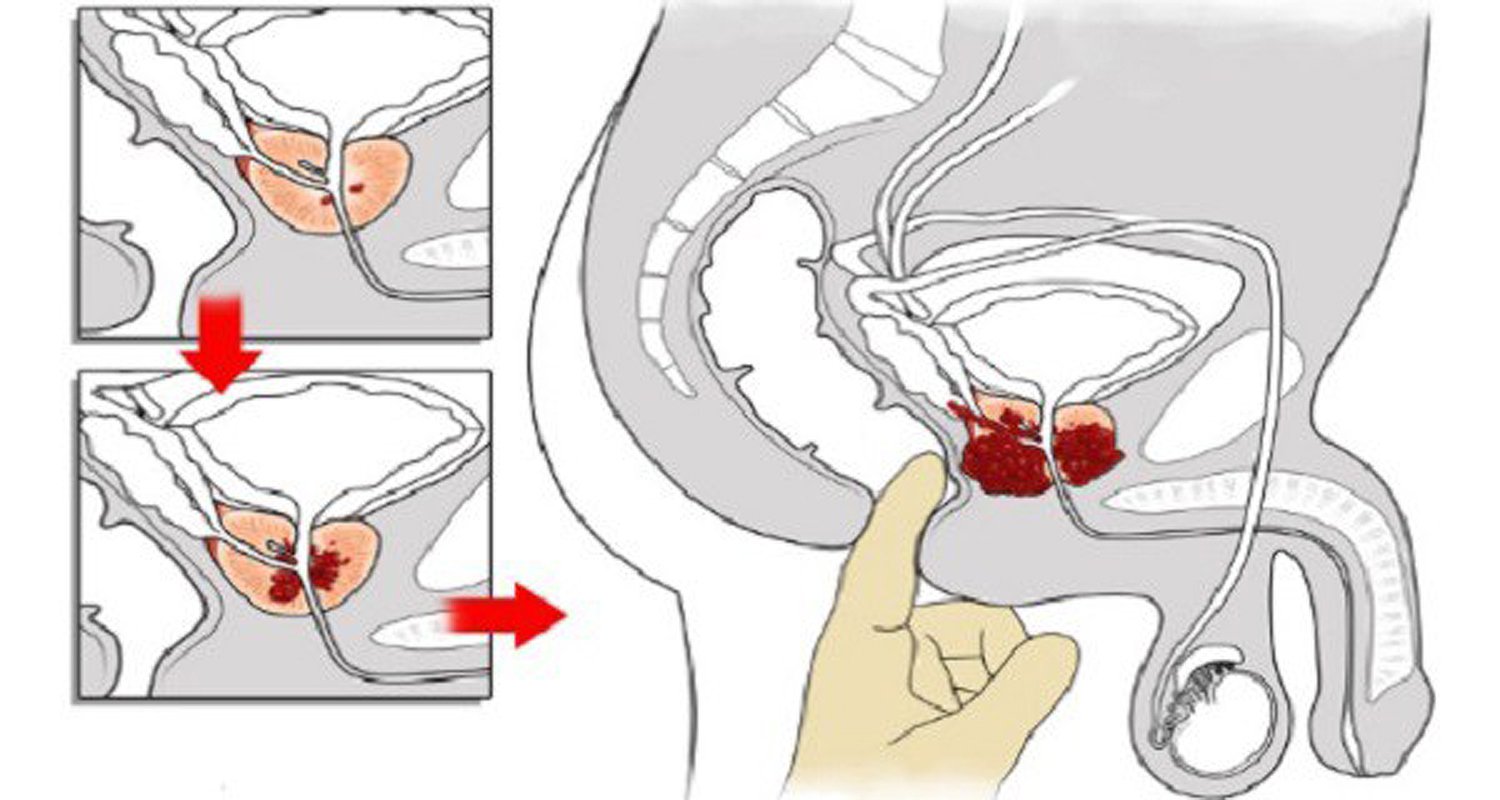Prime
Why prostate cancer is a silent killer

Without treatment, prostate cancer has a tendency to spread to the bones, specifically the pelvis, upper legs, and lower spine. PHOTO/bp.blogspot.com
What you need to know:
Treatable. William Fredrick Ssali did not know he had cancer until he started having trouble urinating. A prostate cancer diagnosis left him wondering why he had not felt or seen any other signs that would have forced him to visit a doctor earlier. This November, we use his story to highlight the need for early diagnosis and treatment.
Prostate cancer is a silent killer of men in Uganda. Silent, because those afflicted with the disease often keep it to themselves, ashamed of what others may think and afraid of the stigma. Only the brave few, who dare to talk about it, give us an insight into what life with prostate cancer is like.
William Fredrick Ssali, a resident of Nansana, Nabweru, was diagnosed with prostate cancer in January 2011 at 80 years of age. For most of his life, Ssali had had no major medical issues and until this diagnosis, he was still okay. However, trouble started when he started having difficulty urinating. Plus, when he did go, the urine did not flow as well as it previously did.
“I talked to my family members who said it could be diabetes. On checking, the results were negative. Then, I heard an advert on radio about herbal medicine that would help someone who had trouble urinating. I tried it for a while but there was no difference,” he says.
Diagnosis
In January 2010, William decided to go to Mulago National Referral Hospital where after explaining his symptoms to a doctor, he was advised to undergo some tests.
“The results showed that my prostate was enlarged. However, the doctor said he needed to check further to find out if it was simply enlarged or enlarged due to cancer,” says William.
He was sent to another medical personnel to perform a biopsy that was sent to a laboratory to check for cancer. The results revealed that he had cancer and the doctor recommended surgery. Like everyone else, the old man was scared about undergoing the operation which he says was synonymous with castration and thus, he held back.
Radiotherapy
“I discussed the matter with a friend who said there was an oncologist at a certain hospital who I could see for alternative treatment options. I went to see the doctor and expressed my reservations about surgery. He then sent me back to Mulago National Referral Hospital where a doctor recommended that I undergo radiotherapy,” he recalls.
In June 2011, William started radiotherapy treatment which ended in July. “Prostate cancer is indeed a silent killer because by the time I was diagnosed, apart from my prostate specific antigen (PSA) being at 279 hence the recommendation for an operation, I felt fine,” he says, adding that with radiotherapy, his PSA kept on reducing although the problem with urination persisted.
William says he continued going for review as advised by the doctor and with every medication given, the PSA would reduce only to shoot up again the moment he missed his medication for some time. “Regardless of the rise or fall in these readings, I felt no change in my health. However, with time, my penis also got swollen,” he says.

William Fredrick Ssali
Since he was unable to empty his bladder, some urine always remained in the bladder and while he could easily go to the toilet during the day, it was hard at night.
He shared his predicament with the doctor and asked if he could see a urologist. He was advised to go to Abi Clinic in Kampala. Here, a urologist told William that the swollen penis and persistent trouble urinating were some of the side effects of radiotherapy.
“He recommended an operation on the bladder to allow for the insertion of a catheter for easy urine flow. He, however, advised that I first go for a scan to establish the cause of urine retention and the results would determine his next course of action,” William says.
Catheter
Despite a catheter being inserted, William’s penis continued swelling. “The catheter was inserted in May 2019 without much change until a family friend, Betty Kwagala, advised me to visit Urocare Hospital in Nansana, Kampala, where she had taken a child with urination issues with good results. She added that an operation may not even be necessary,” he says.
However, unlike the child, William needed an operation to alleviate the swelling. “Although I had earlier refused to undergo an operation, this time, I agreed. The swelling has since reduced although I still have to use the catheter that is changed on a monthly basis,” he says.
While he has never felt any pain owing to the cancer, he has trouble wearing a catheter. The drugs are also very costly.
Support system
William Mukalazi, one of Ssali’s grandchildren and his caretaker says while it is hard to watch his grandfather suffer, it is his duty to take care of him. “He is resilient and there has been a lot of improvement since he started treatment,” he says.
Mukalazi adds that his grandfather loves reading which he says is therapeutic and has helped to change his perspective on life because in the beginning, he punctuated every sentence with the fact that he was about to die.
“Today, he is very positive which makes taking care of him easy.”
Mukalazi, who lives a few metres from his grandfather is always alert in case of emergencies although they are rare. “I am on call in case I need to drive him to hospital. I am also always aware of his appointment days,” he says.





